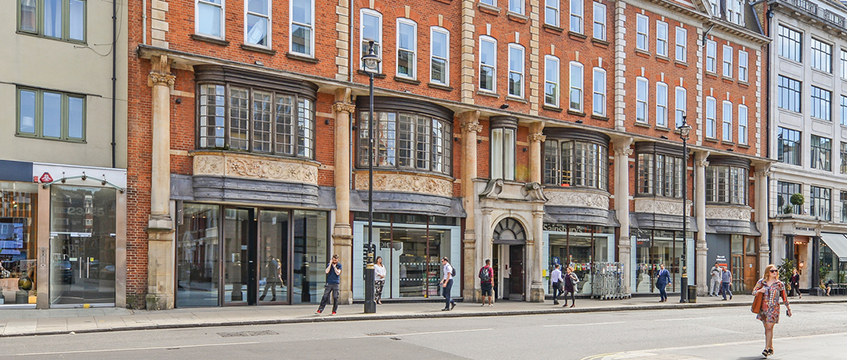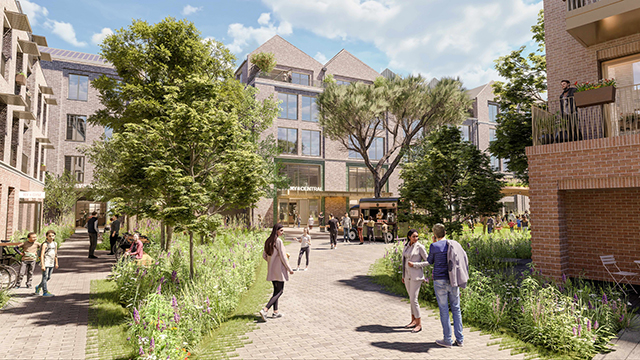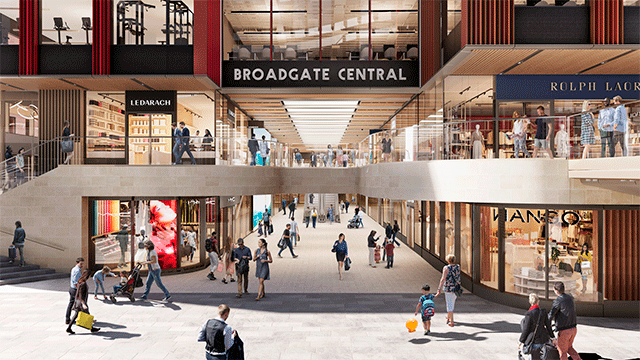This year, UK agents have explored a number of events and themes likely to affect UK real estate. Here, EG highlights the standout comments and trends which touch on a potential slowdown in leasing deals against a rise in investment volumes, the key sectors to watch and the London leisure market.
JLL: Occupier inertia threatens leasing activity
Elaine Rossall, head of UK offices research, is concerned that occupier activity will slow down significantly this year. She says: “There are tentative signs that momentum is starting to slow, as the economic and political headwinds impact on business sentiment. Occupier inertia is a threat to leasing activity in 2019 and we expect that companies will behave in the same vein to that seen in the period around the referendum in 2016.
“As such, leasing demand is likely to slow in the early part of the year, as occupiers pause to assess the implications of the Brexit deal on their business. This is likely to be short-lived as so much of today’s demand is structural – lease breaks and expiries – and a bounce back is expected in the latter part of the year. This will support rents throughout the year, with demand remaining robust and supply limited.”
Colliers International: Investment volumes could top £50bn
A number of transactions have slipped into the new year, meaning 2019 investment volumes could still exceed £50bn for a seventh successive year despite expected first-quarter volatility, according to Colliers International.
Asian investors will also continue to seek large trophy assets when they become available, while instability in Europe may provide another tier of safe-haven investors for London and key regional cities, says Mark Charlton, head of research and forecasting at Colliers.
The attraction of long and secure income drove investment in the alternatives sector to a new high in 2018 (33% of trading volumes) and Colliers predicts that this will push nearer to 40% in 2019, with industrial still predicted to be the hot ticket this year.
Meanwhile, UK institutional funds look set to continue to be net buyers in 2019 and this “increased domestic competition with cross-border investors will support prices, despite the expected devaluation of retail assets,” Charlton says.
In the London office market, landlords and developers are expected to embark on “quick and dirty” refurbishments to reposition existing stock, Charlton adds.
CBRE: Sectors to watch
The e-commerce revolution will continue to sustain demand for industrial and logistics space in 2019, with demand for bigger “big boxes” increasing fastest. “No deal” Brexit concerns have not yet been a major force in driving demand and speculative development is starting to address supply-side concerns, according to CBRE. Investment demand remains very strong, but investors will need to key an eye on innovations in logistics technology.
Interest in the so-called “beds” real estate investment sectors continues to grow, with rented housing, student accommodation, hotels and healthcare all experiencing growth. They display certain similarities in terms of operational risk and major supply-side constraints which drive price growth.
However, 2019 may see changes in investment patterns. For instance, there will likely be significant growth in institutional capital moving to invest in hotels, even as private equity funds remain active in this space.
The perceived market and economic uncertainty in 2019 will also drive further interest in healthcare real estate. To date, specialist funds have raised significant new capital to focus on the sector and infrastructure funds have entered the market. CBRE expects a “flight to safety” to drive relative performance and investment volumes in the healthcare market throughout 2019.
For retail, a perfect storm of Brexit, business rates, inflation, the growth of e-commerce, and labour cost pressures, will weigh on the minds of UK retailers in 2019. The retail and hospitality landscape will polarise into “experience” and “convenience”, with shopping centre owners likely to act to reposition their assets accordingly.
Investment volumes are likely to remain low, but pubs, leisure, and roadside retail will move increasingly into investors’ sights as these previously niche sectors become more investable.
Miles Gibson, head of UK research at CBRE, says: “With Brexit not yet done and dusted, rather weak UK growth, and a range of international risks, 2019 will be a challenging year for UK real estate. While there will be some variance across sectors, UK property will nevertheless continue to deliver stable returns, underpinned by a robust income profile.”
BNP Paribas Real Estate: Potential bounce as market stabilises
BNP Paribas’ head of City agency Dan Bayley is predicting a subdued first quarter in the Square Mile while occupiers await clarity on what the final Brexit deal will look like.
However, he expects this to play into the hands of the serviced office providers in the intervening period, with occupiers looking for shorter-term rental agreements to tide them over until a Brexit deal is done and they are confident enough to commit to longer-term tenancies.
He expects a “material bounce upward as the market stabilises” following a deal being done.
This year, Bayley believes the popularity of Farringdon and the South Bank will continue to grow, while he says Stratford and Canary Wharf are also likely to “benefit from an increase in occupier activity as they take advantage of the relative value on offer and the improved transport links that the arrival of Crossrail will bring”.
Cushman & Wakefield: “Competitive socialising” to define London leisure openings
More food halls and rooftop venues will appear this year across the UK, says Thomas Rose, head of leisure and restaurants at Cushman & Wakefield.
“Despite all the negative press, the consumer still wants to spend on leisure time and the opportunity for operators lies in giving the consumer more flexibility and new experiences,” he says.
“The growth of competitive socialising is going to continue to grow exponentially. We will see social entertainment ventures, such as PuttShack, Bounce and HiJingo, continue to grow their brands and there will also be international entrants from the US in 2019.”
However, Rose warns that Brexit could potentially have a “huge impact” on the labour market in the hospitality sector, which he points out is the third largest private sector employer in the UK, providing 10% of UK employment, 6% of businesses and 5% of GDP.
Knight Frank: 2019 will be better than expected
Stephen Clifton, head of commercial at Knight Frank, predicts 2019 will beat expectations.
He says: “A Brexit deal will evolve, a massive layer of uncertainty will be removed and be replaced by rock solid and attractive international investment fundamentals. 2019 will be a much better year than most people anticipate. The cycle is stretching and far from over.
“As a stable asset class, property will be prioritised, with London and the UK clearly ultra-competitive and attractive from a global perspective. Supported by a resolutely robust occupier market, rents in London and across key UK cities will rise and underpin investment performance.
“Business agility, stock selection and micro market insight will be fundamental to outperformance and Asian investors will dominate. Access to unique value add data, stock and relationships is where Knight Frank will increasingly differentiate.”











